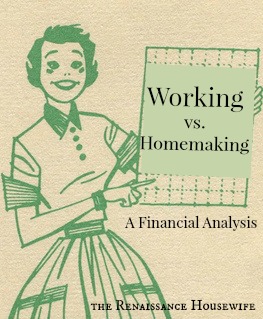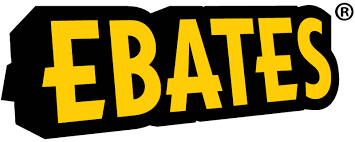Long-term Cash (3-5 years)
My best strategy for long-term supplemental income is starting a little micro business using skills unique to you. This could actually go along with a lot of the previous ideas in Part 1. However, it's one thing to have a garage sale, and another thing to have multiple garage sales and actually run a little business hosting garage sales. I like using the word "micro business" because running a small business (my husband has a small business... it's a full-time job) is probably too much for those of us who are working wives, mothers of small children, homesteaders or homemakers.
The difference between a business and odd jobs is that a business requires focus and record keeping. A business needs to scale, and it needs to be sustainable. If you are selling a service, that means you can't spend five hours on a job and get $20.00. If you are selling products, you can't put $20.00 into supplies and sell an item for $25.00. You won't make enough money that way. If that's your idea of "business", you'd be better off just working a "real" part-time job.
Another difference between a business and a short-term odd job is that your business will be unique to YOU. Anyone can sell stuff at a farmers market or teach a 5-year-old how to play piano. Your business will be most profitable if you are the BEST at what you do and everyone knows you for that one thing that you do. As homemakers we need to be generalists and Jills-of-all-trades, but as business women we need to specialize in order to make the most money.
My Micro Business
I enjoy doing odd jobs and selling stuff on the side, but my real micro business is writing books. Being an author is something that can scale (more books under your belt = more money) and it's sustainable for me because I'll never get tired of it. But in order to start a business writing, I had to learn new skills that most people don't have. I had to specialize. Anyone can type out a blog post or put their thoughts in a Word document. But I also had to learn how to format those documents for ebooks AND print books. I had to learn how to use different publishing platforms. I also had to learn how to SELL books, which is way different than just producing them. In order to sell, you need to have a marketing plan and have customers.
Not everyone was born to write and not everyone who writes a book can make money at it. If your personality and interests are just like mine, then maybe book-selling is for you. But if you are an extrovert or don't like to write, I know there is some other micro business out there waiting for you.
Multi-level Marketing
When talking about home businesses, the subject of multi-level marketing/ direct sales/ network marketing is bound to come up. If you are going to get involved in one of these "businesses", keep records like you would for any other business. Keep track of all of your expenses, time spent, and gross profit on a monthly basis. Subtract your expenses from your gross profit, and that is your net profit. But we're not done! Divide your net profit by the time you've put into it, and that's your hourly wage.
One pitfall I see with network marketing is people not calculating their hourly wage or subtracting actual costs. For example, they might say "I made $500.00 this month!" That might be the number on their commission check, but what about expenses? Most consultants have to pay membership or have in-home parties or drive to potential customers' homes in order to do presentations. If you subtract the cost of gas and/or party supplies, plus membership (or required product purchases), your $500.00 might be down to $400.00. If you're spending 10 hours per week on your business, you're earning just $10.00 per hour.
Again, $10.00 per hour isn't BAD, but is it the best? Are there other things you could be doing with your time to earn more money?
I'm sure network marketing is a good micro business for some people. However, if you took the time you spent in network marketing and started a business giving piano lessons, that 10 hours per week would earn, at a minimum, $200.00 per week ($800.00 per month). By hosting the lessons at your home and having students purchase their own supplies (standard practice among teachers), you could eliminate gas and other costs. If you put $50.00 per month back into your business, your net profit would be $750.00 and hourly wage would be $18.75.
Multi-level marketing needs to be treated like any other business. And like any other business idea, you need to ask yourself if it's truly a right fit for you, long-term. Do you have the skills? Do you have the right personality? Recruiters like to say that anyone can succeed in network marketing if they do the right things and put in enough hours. If that's true, then it's true for ANY home-based business including private tutoring, writing books or doing wedding photography.
Any good network marketer has put hours and hours in with little or no pay, in order to build their business. Are you willing to stay in the same company for several years, hosting parties and making phone calls for free? If you love the products, parties and phone calls enough to do it for free, then network marketing is probably for you.
Finding a Business for You
If phone calls and parties aren't for you, then what is? What kind of work are you willing to do for free? When I first started selling ebooks, I was happy to sell one or two copies per month. Most months I didn't sell any copies. This went on for over a year until I wrote my second book. After that book was published, I sold at least one book per month, and three on a fabulous month. That means I was lucky to make $4.00 per month. Almost two years after publishing my first book, I published my third book. This time I put the past two years' worth of accumulated marketing knowledge to work and the book earned $500.00 in the first three months. Wow! That's an average of $167.00 per month!
Unfortunately, nine months after the launch I'm not making that kind of money any more. However, I AM making a lot more than $5.00 per month (with almost no work at this point). A business is something that needs to be built and it needs to be built on something you really enjoy. Because you might not make any money for the first year or so.
Long-term vs. Short-term Extra Income
The difference between short-term and long-term supplemental income is your hourly wage. When I first got married, I was happy to earn $4.00 per hour after costs, because that's what I would have earned as a married secretary (thanks, Uncle Sam). But I didn't want to be 25, 30 or 50 years old and still earning $4.00 per hour. As we mature and add skills and knowledge to our repertoire, our income should increase as well.
If you are paying off debt or saving for something that you needed YESTERDAY, then short-term income is the way to go. You don't really have time to develop skills or find customers. Get all of the financial fires put out (i.e. debt) before you start trying to build a business.
Here are some (free) steps you can take in the meantime:
1. While you're listing Furbies and old American Girl stuff on Ebay, think about what you'd like to be doing in five to ten years from now. And no, lying on a beach in the Caribbean doesn't count. That gets old after about a week (ask me how I know). As human beings, we were created to work. So think about what your skills, passions and personality are. Think about what you enjoyed doing as an elementary school kid; that is often a very good clue of what would work as a business for you. I spent hours and hours using my grandma's typewriter (remember those?) to make books and poems and newsletters. I did the same thing on my dad's typewriter in the basement, and later on our computer. What activities did you enjoy as a child?
2. Borrow some business books from the library and read them before going to bed. Some of my favorites are The E-Myth (or The E-Myth Revisited), Good to Great and Rich Dad, Poor Dad. While most business books are not geared toward the homemaker, we can still learn from them and use what applies to us.
3. Find ways to acquire skills or hands-on training for free. For example, you can help someone else in their business or find someone whose tools you can borrow. Volunteer work is a good way to gain experience, though it might require a babysitter. If you are going to make and sell quilts, don't buy a bunch of fabric to practice on. Instead, find some old ladies' church quilting group and help them make quilts for charity. You will learn a LOT more by working with experienced hands then by fumbling through everything on your own. Plus you won't have to fund the whole project by yourself.
Next summer I plan on selling strawberries on a roadside stand. Instead of paying for a $500.00 "strawberry business ecourse", I just talked to a lady who is already doing it. In addition, I spent a week being one of her berry pickers. At first I wondered how much I'd learn (because how hard is it to pick a strawberry?), but after 13 hours of picking I had a grasp on the best and fastest way to pick. More importantly, realized how I need to have BIG berries and weed-free plants that are easy to look through. The bigger I can make my berries, the less time I'll spend picking for more profit. As a bonus, my "training" was paid! It was enough to pay for the 300 plants I bought in April.
If you are past the debt-free journey and have some money to invest in your business, here are some more steps you can take:
1. Invest in tools. Knowledge is easy to get for free, but you'll probably have to pay for tools. Why invest in tools before business cards, courses and memberships? Because if you decide you don't want to do your business, the tools can always be sold. No harm done.
2. Buy supplies and make some products to sell. Not too many though, in case you change your mind about what you want to sell.
3. Find some customers and start making money. If you are in a services business, you can skip step #2 and just start making money. It doesn't have to be a lot at first. Even one job per month is a start, and it will help you earn some capital to grow your business. Remember my $0.00 - $4.00/mo. book sales? It was still better than nothing, and I gained a lot of experience during that time.
4. Reinvest 10-50% of your earnings back into your business. If you are in a services business, you can start paying for more/better training or buy books that will help you learn your trade. If you're in a product-based business, you can invest more money into tools or acquiring customers (selling at different shows, through different online platforms, etc.).
When you are reinvesting into the business, do it in a smart way. Ask yourself "What training would make me more valuable to my customers?" "What tools will help me earn more money per hour?" Don't just buy MORE stuff or MORE training. Don't just buy better advertising material or things that won't give you a return. Look for ways to make your business more efficient and profitable. If there's no financial gain from a purchase, it's not an investment.
Why a Micro Business?
Half of home economy is saving money and cutting costs. But you can only cut costs so far. The other half of home economy is bringing in an income via cottage industry to pay the costs that remain. Economics is about money in, money out. Most of us have the "money out" part down pat; it's the money coming in that could use a little help. Having a successful micro business (or lifestyle business, as some would call it) will create a steady, dependable source of income for many homemakers and stay-at-home moms.
Do you have a micro business? What are some of your favorite books or things you've learned from hands-on experience?



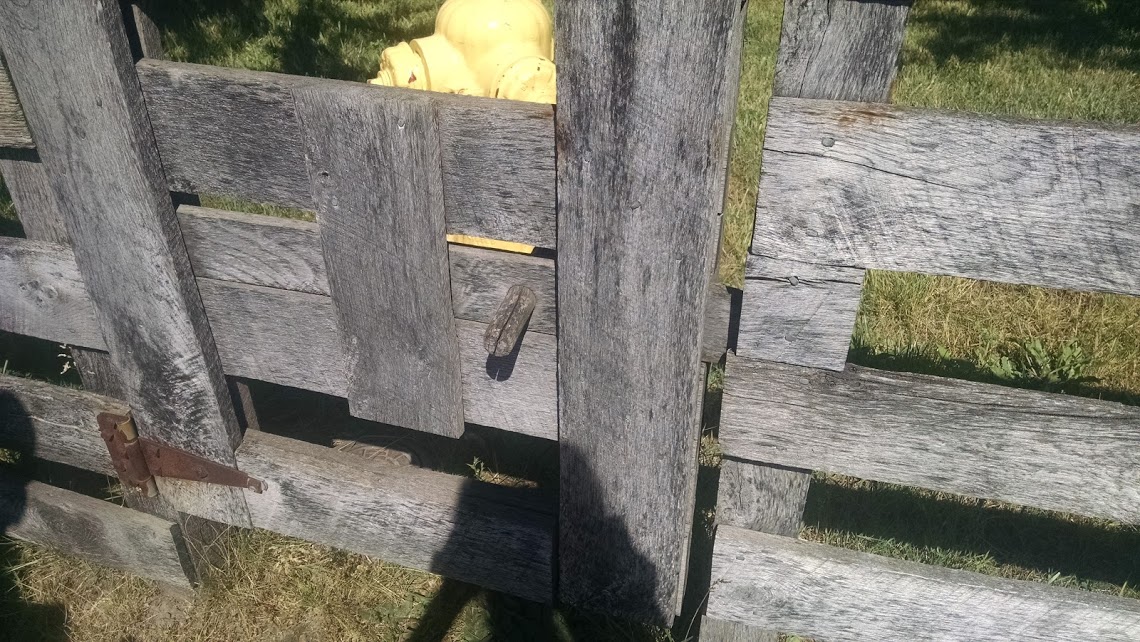

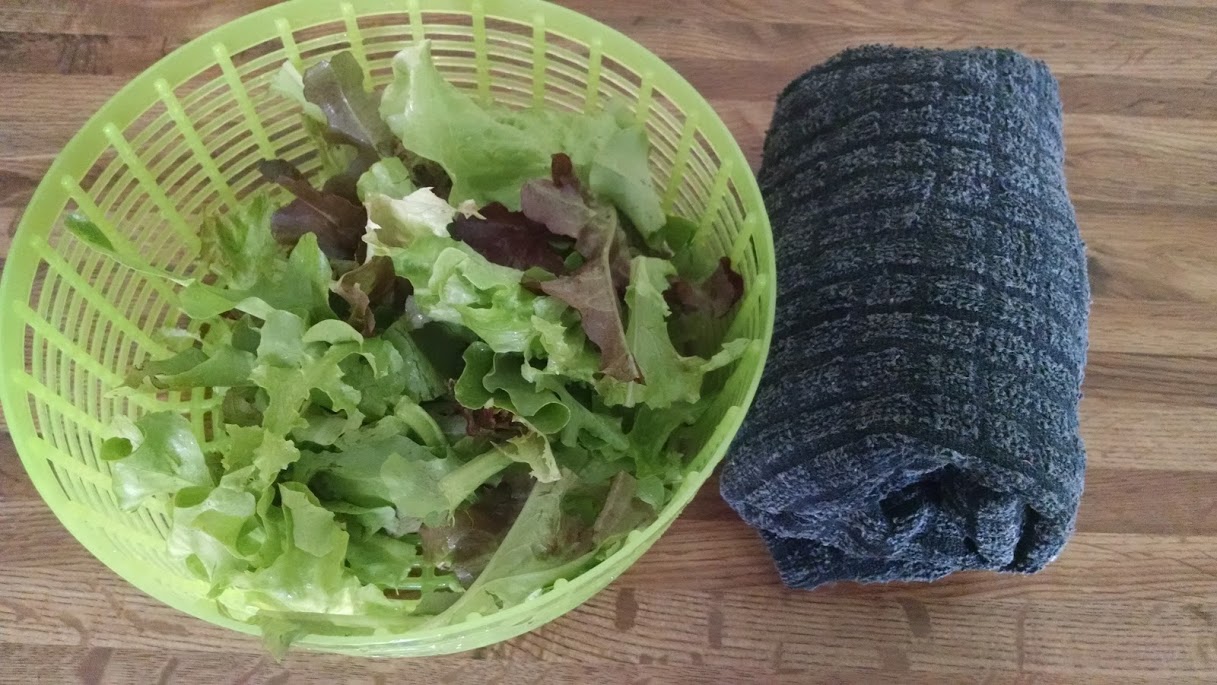

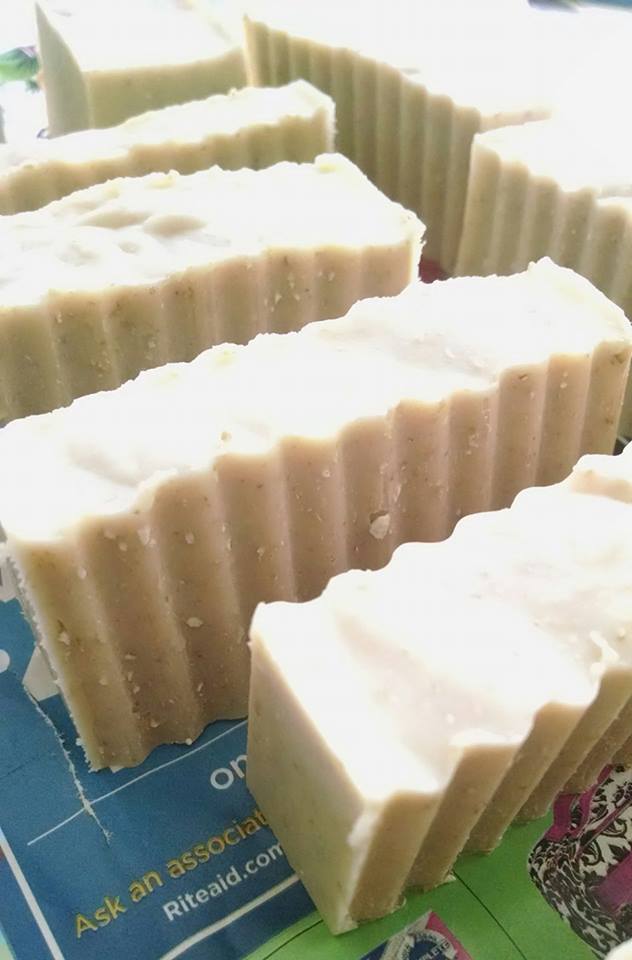


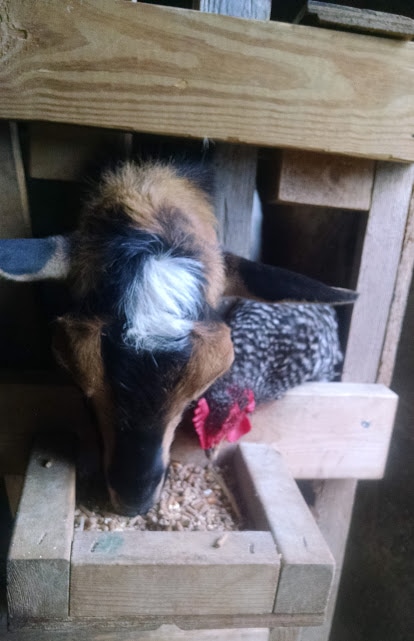







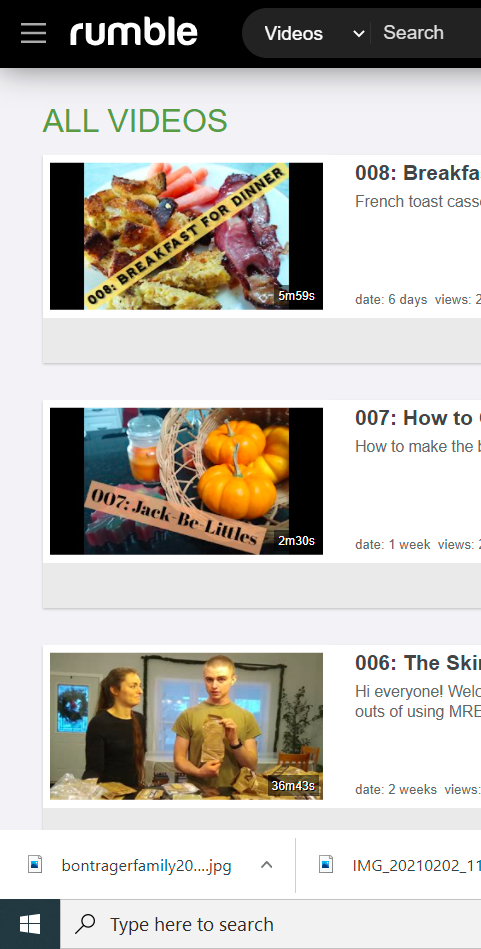
 RSS Feed
RSS Feed


